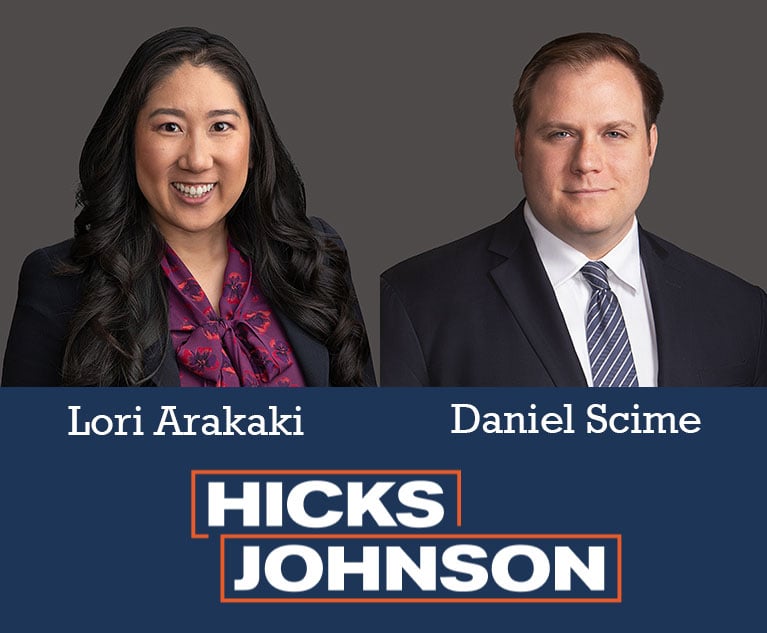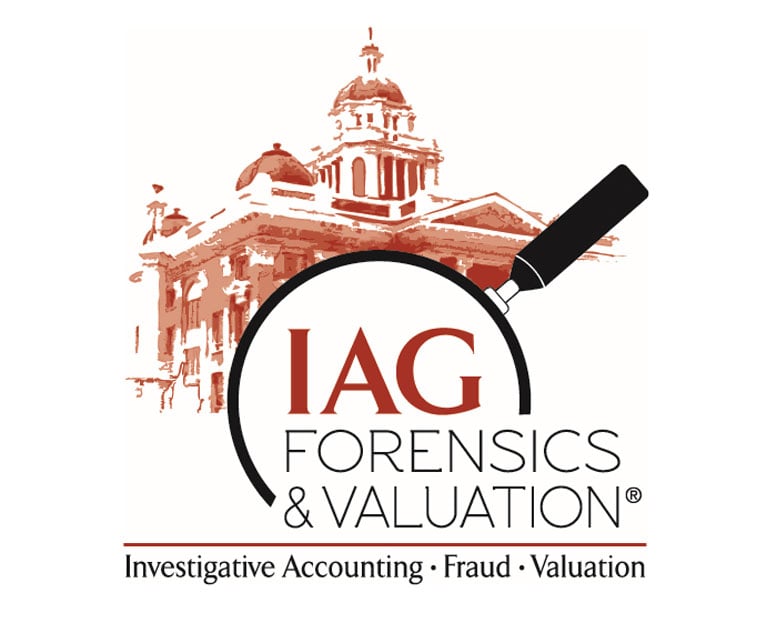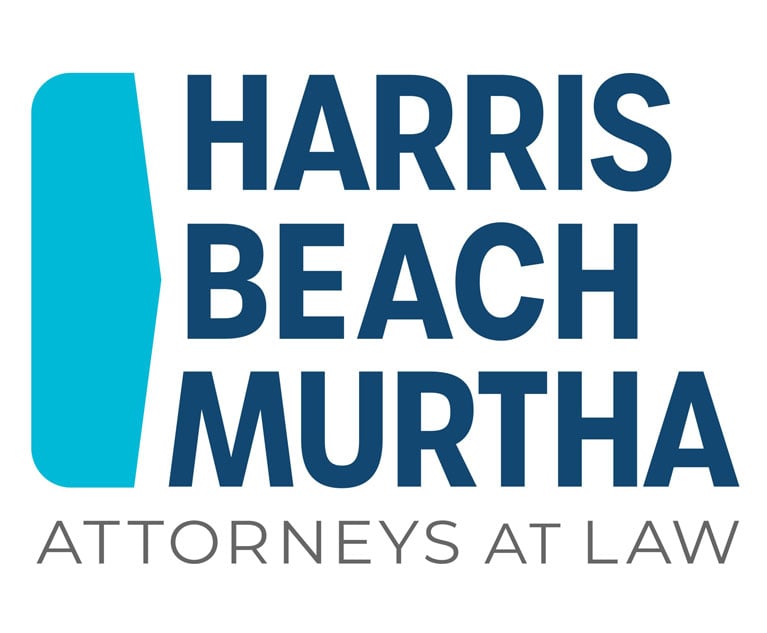What Does It Take to Succeed With Clients? Here's a Theory
Talent, expertise and knowledge is the foundation but the differentiator is how a lawyer applies those skills to deliver the client to a desired result.
November 13, 2018 at 03:53 PM
6 minute read
Why are some lawyers work magnets and others, well, not so much? We've all seen this. In any law firm, on any floor, you can see two lawyers who are superficially much the same. Similar law school, similar age, similar area of speciality. As the saying goes, you couldn't get a bus ticket between them. And yet, one struggles to find work while the other lawyer always seems to be consistently busy. If they're both capable, and they're both ready, willing and able to do the work, why is this so?
We all know what the ingredients are to be a lawyer, and in this example both lawyers have them. So maybe the question is which are the important attributes that really matter to clients and work-givers?
Let's dismiss technology from this discussion at the outset. We're talking here about lawyer attributes not law firm equipment. So let's start with likeability. Don't underestimate this, but don't overestimate it either. You can be the best lawyer on the planet, but if people don't like you they won't send you work. On the other hand, charm and affability will only get you so far. Let's also dismiss some other variables, like nepotism, luck and sheer randomness. Again, we've all seen these things, and if the universe bestows you with any of them, then good luck to you. But these factors will only get you so far, and only for so long.
➤➤ Why work harder when you can work leaner? Have you explored the benefits of Lean Adviser Legal from Law.com?
Eventually, for most of us, the key distinction has to lie in the fundamentals, the hard-core lawyering attributes. So let's examine those and try to figure out which ones are the difference-makers. Since we're delving into what appeals to work-givers, the challenge starts with understanding what it means to deliver legal services the way that clients want. This is a minor fixation of mine, about which I write and talk obsessively. Pause there. Is it possible that two superficially equal lawyers can have vastly different appeal to clients, just because one understands what clients want, and the other does not?
Honestly, in my experience, hell yes. Private practice is a service industry like any other. It's not enough to deliver the service, we have to do it the way the customers want. If we can get a fix on that, we can isolate the attributes which successful lawyers have, to enable them to respond to it.
So let's delve into the bucket of lawyer attributes, and try to establish which ones clients cherish. When I talk about this I often start by saying that if you're focusing on 'TECH' as in technology, you're looking in the wrong place, but if you want to discuss TEK as in 'talent, expertise and knowledge' you'll be getting a lot warmer. This idea of talent, expertise and knowledge bears some scrutiny. Talent is what you were born with, expertise is the result of practice, and knowledge is what you learn and remember along the way. If you're a fishmonger you bring your cod and salmon to your shop every day, and if you're a lawyer you bring your talent, expertise and knowledge to your shop every day. Pretty obvious, right?
Where it gets interesting is how you apply this talent, expertise and knowledge. Look at it this way, a lawyer's talent, expertise and knowledge is the foundation, but a key difference-maker for clients is the application of it, in other words how TEK is applied to their problems.
Let's go back to our two contrasting lawyers, and take an example. A client or work-giver gives the struggling lawyer a situation to advise upon. The first call is on the lawyer's analytical skills, to answer the question, what have we got? The lawyer analyzes all the documents, identifies the prevailing law, applies it to the reported facts and considers the instructions. “You want my advice on the situation,” says the lawyer, “OK, here it is, a solid black-letter law answer to our question.” Analytical savvy is certainly an attribute, but that alone is not enough. What's more, this type of “what have we got” analysis is under threat from the new disruptors, particularly AI.
Given the same task, what would the busy lawyer do differently from the struggling lawyer? Before reading or analyzing anything, the busy lawyer would engage with the work giver to understand the client's problem and objectives. Then comes time to focus on the documents, not all of them, just an identified core, then comes validation of the reported facts and instructions. The busy lawyer would do all this before identifying the prevailing law. The approaches of the two lawyers may not be much different, but the difference in method is significant. Actually we can shorten that to 'method is significant.'
As I often say, clients don't hire outside counsel for legal advice in a vacuum; they hire lawyers to help them achieve business objectives. This is all that matters to the client. And in response, the lawyer's methods must help clients reach the right outcome, on time and on budget. So far so good, analysis with a structured method. But the busy lawyer doesn't stop there. Savvy analysis is never the only task because 'what have we got' is never the only question. Clients also want vision (where could it go?) and creativity (what could we do about it?). In my experience, clients can often do their own analysis, but they will pay a premium for vision and creativity.
So is that it? Yes, just about. The core attributes of the successful lawyer are analytical savvy, harnessed to a method, with vision and creativity. The lawyer who can put all that together consistently will be a reliable and useful consultant, and will be consistently busy.
Alex Geisler is a London-based litigation partner with Duane Morris and the creator of the Lean Law Program. He is an accredited trainer and author on topics including legal process optimization, knowledge management, negotiation, process mapping and scenario planning.
If you enjoyed this article, click here for more information on Lean Adviser Legal, a complete legal process management program.
NOT FOR REPRINT
© 2025 ALM Global, LLC, All Rights Reserved. Request academic re-use from www.copyright.com. All other uses, submit a request to [email protected]. For more information visit Asset & Logo Licensing.
You Might Like
View All

Hicks Johnson Promotes Lori Arakaki and Daniel Scime to Firm Partnership
2 minute read
IAG Forensics & Valuation is excited to announce promotions at our firm effective 1/1/2025.
1 minute read
Trending Stories
Who Got The Work
J. Brugh Lower of Gibbons has entered an appearance for industrial equipment supplier Devco Corporation in a pending trademark infringement lawsuit. The suit, accusing the defendant of selling knock-off Graco products, was filed Dec. 18 in New Jersey District Court by Rivkin Radler on behalf of Graco Inc. and Graco Minnesota. The case, assigned to U.S. District Judge Zahid N. Quraishi, is 3:24-cv-11294, Graco Inc. et al v. Devco Corporation.
Who Got The Work
Rebecca Maller-Stein and Kent A. Yalowitz of Arnold & Porter Kaye Scholer have entered their appearances for Hanaco Venture Capital and its executives, Lior Prosor and David Frankel, in a pending securities lawsuit. The action, filed on Dec. 24 in New York Southern District Court by Zell, Aron & Co. on behalf of Goldeneye Advisors, accuses the defendants of negligently and fraudulently managing the plaintiff's $1 million investment. The case, assigned to U.S. District Judge Vernon S. Broderick, is 1:24-cv-09918, Goldeneye Advisors, LLC v. Hanaco Venture Capital, Ltd. et al.
Who Got The Work
Attorneys from A&O Shearman has stepped in as defense counsel for Toronto-Dominion Bank and other defendants in a pending securities class action. The suit, filed Dec. 11 in New York Southern District Court by Bleichmar Fonti & Auld, accuses the defendants of concealing the bank's 'pervasive' deficiencies in regards to its compliance with the Bank Secrecy Act and the quality of its anti-money laundering controls. The case, assigned to U.S. District Judge Arun Subramanian, is 1:24-cv-09445, Gonzalez v. The Toronto-Dominion Bank et al.
Who Got The Work
Crown Castle International, a Pennsylvania company providing shared communications infrastructure, has turned to Luke D. Wolf of Gordon Rees Scully Mansukhani to fend off a pending breach-of-contract lawsuit. The court action, filed Nov. 25 in Michigan Eastern District Court by Hooper Hathaway PC on behalf of The Town Residences LLC, accuses Crown Castle of failing to transfer approximately $30,000 in utility payments from T-Mobile in breach of a roof-top lease and assignment agreement. The case, assigned to U.S. District Judge Susan K. Declercq, is 2:24-cv-13131, The Town Residences LLC v. T-Mobile US, Inc. et al.
Who Got The Work
Wilfred P. Coronato and Daniel M. Schwartz of McCarter & English have stepped in as defense counsel to Electrolux Home Products Inc. in a pending product liability lawsuit. The court action, filed Nov. 26 in New York Eastern District Court by Poulos Lopiccolo PC and Nagel Rice LLP on behalf of David Stern, alleges that the defendant's refrigerators’ drawers and shelving repeatedly break and fall apart within months after purchase. The case, assigned to U.S. District Judge Joan M. Azrack, is 2:24-cv-08204, Stern v. Electrolux Home Products, Inc.
Featured Firms
Law Offices of Gary Martin Hays & Associates, P.C.
(470) 294-1674
Law Offices of Mark E. Salomone
(857) 444-6468
Smith & Hassler
(713) 739-1250









